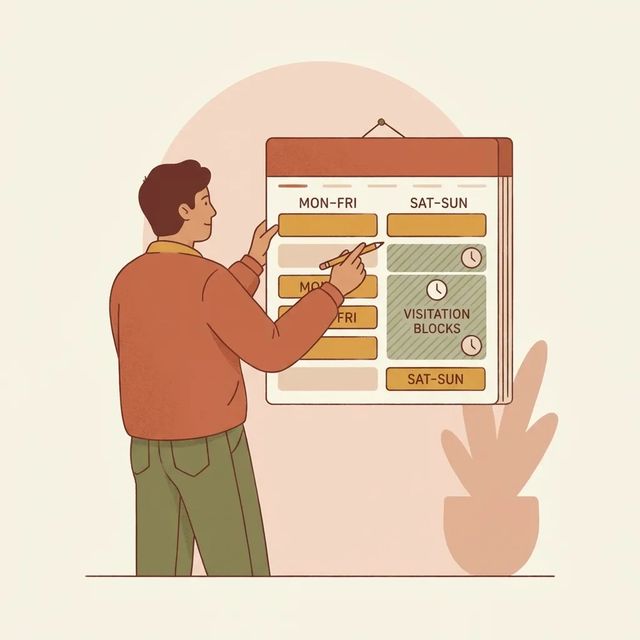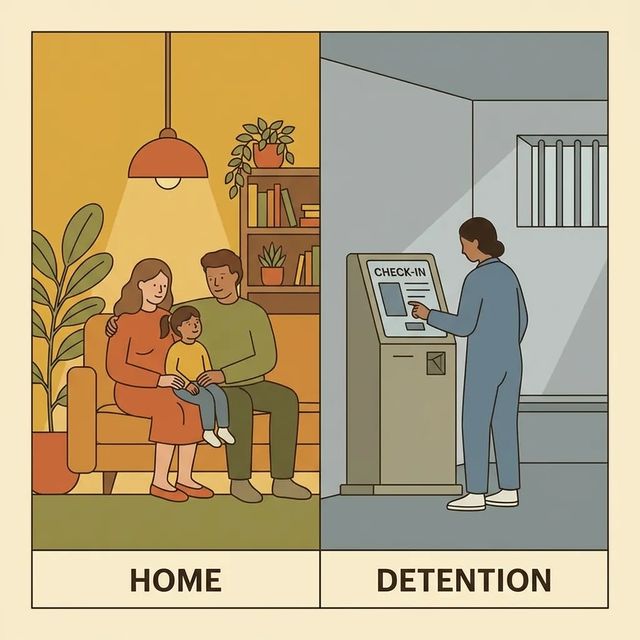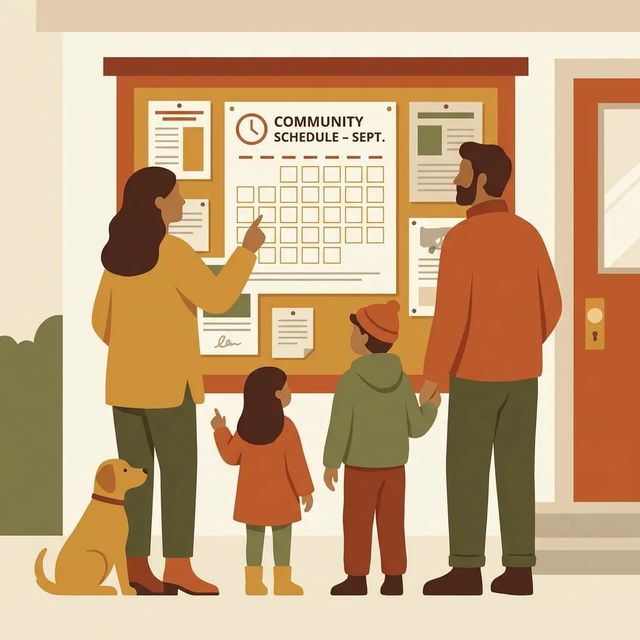Cumberland County Jail
Need to reach someone at Cumberland County Jail? Look up an inmate, send messages or mail, add commissary funds, or schedule a visit.
Explore
Find an Inmate at Cumberland County Jail
Search for a loved one and send messages and photos in minutes.

Guides for This Facility

Cumberland County Jail Visiting Hours: When You Can Actually Visit
Visiting time at Cumberland County Jail is divided into specific blocks depending on the day. Here are the hours the facility publishes—plus one schedule mismatch you'll want to double-check before making the trip.
Read Guide
How Inmate Phone Calls Work at Cumberland County Jail: Collect Calls, Time Limits, and Why Cell Phones May Not Get Calls
Waiting on a call from Cumberland County Jail? The rules can feel confusing—especially when you hear
Read Guide
How to Visit Facility
Visiting is straightforward once you know the time windows and the check-in cutoff. Use the hours below to plan your day, and make sure you arrive early enough to avoid an automatic cancellation.
Read GuideAt a Glance
Visitation
- Inmates are allowed up to 2 in-person visits per day, with a maximum of 14 visits per week.
- The facility’s materials indicate visitation is open seven days a week.
- The jail’s website contains conflicting published visiting hours (one page lists weekday/weekend/holiday blocks while another lists 9:00 AM–11:00 AM and 2:00 PM–4:00 PM daily).
Communication
- Anyone over age 16 must register on the GTLVISITME website to use Cumberland County Jail’s video visitation service.
- Video visits from home are available daily from 8:30am to 9:45pm and are monitored by the facility/vendor.
- Fees for remote video visits are $4.00 for up to 10 minutes and $10.00 for up to 25 minutes.
Sending Commissary
- Monitored video visits at Cumberland County Jail cost $4 for up to 10 minutes and $10 for up to 25 minutes and are available daily from 8:30am to 9:45pm.
- For desktop internet visits, GTL’s visitor portal instructs users to log into their visitor account at least 10 minutes before the visit and run the Internet Visit Tester to download the VisBridge application.
- Money sent to an inmate is placed into a trust/commissary account for purchases and approved debits; leftover balances are returned when the person leaves or transfers.
Based on official sources and community feedback.Learn how we verify
Topic Overviews
Visitation
Visiting at Cumberland County Jail takes extra planning because the jail's online pages show conflicting visiting-hour schedules. Before you travel, double-check the hours on the specific page you're using. One page lists separate weekday, weekend, and holiday blocks, while another shows fixed daily blocks. Inmates may have up to 2 in-person visits per day, with a weekly cap of 14 visits, and visitation is available 7 days a week. For video visits, Cumberland County Jail uses GTL's visitor portal. GTL recommends logging into your account at least 10 minutes before a desktop visit, running the Internet Visit Tester, and downloading the VisBridge application if needed. Confirm approved-visitor and scheduling requirements before you go.
Read full guideCommunication
Cumberland County Jail uses GTL's remote video visitation service for video visits from home. Anyone over age 16 must register on the GTLVISITME website before using the system. Remote video visits are monitored by both the facility and the vendor. Fees are $4.00 for up to 10 minutes and $10.00 for up to 25 minutes, available daily from 8:30am to 9:45pm. Log in well before your scheduled start time. If you check in more than 5 minutes late, the vendor can automatically cancel your visit, and the facility cannot override that cancellation. Phone service, tablet messaging, and video are typically handled through your vendor account, so you'll use the vendor app or website to schedule visits and add funds.
Read full guideSending Commissary
Adding money for someone at Cumberland County Jail goes through a third-party payment vendor. Your options typically include deposits through a website or mobile app, phone payments, walk-in retail or kiosk locations, and Western Union-style cash deposits (check the payment portal for available vendor choices). The money goes into the person's trust or commissary account for purchases and approved debits. Any remaining balance is returned when they leave or transfer. When making a deposit, enter the incarcerated person's full booked name and inmate or account number exactly as shown on booking records. Follow the vendor's instructions, including any required deposit slips for mailed money orders. The jail also charges for monitored video visits: $4 for up to 10 minutes and $10 for up to 25 minutes, available daily from 8:30am to 9:45pm. For desktop internet visits, log into your GTL visitor account at least 10 minutes early and run the Internet Visit Tester to download VisBridge.
Common Questions
Showing 6 of 9What are the visiting hours at Cumberland County Jail?
The jail's pages publish different schedules. One lists separate weekday, weekend, and holiday blocks, while the FAQ shows 9:00 AM to 11:00 AM and 2:00 PM to 4:00 PM every day. Because the site is inconsistent, verify hours on the specific page you plan to use before traveling.
VisitationHow many in-person visits can an inmate have at Cumberland County Jail?
Inmates are allowed up to two in-person visits per day, with a weekly maximum of 14 visits.
VisitationDo I need to prepare anything for an online/video visit at Cumberland County Jail?
Yes. Video visits use GTL's visitor portal. GTL recommends logging in at least 10 minutes early for a desktop visit and running the Internet Visit Tester to download VisBridge if required. Confirm whether you need to be on the approved visitor list and whether visits must be scheduled in advance.
VisitationHow do I register for video visits at Cumberland County Jail?
Start by registering on the GTLVISITME website. Anyone over age 16 must complete vendor registration before using video visitation. From there, you can use the vendor portal or app to schedule visits and manage funds.
CommunicationWhat are the costs and hours for video visits from home at Cumberland County Jail?
The vendor lists fees of $4.00 for up to 10 minutes and $10.00 for up to 25 minutes. Remote video visits are available daily from 8:30am to 9:45pm, and visits are monitored.
CommunicationWhat happens if I’m late to a scheduled video visit?
If you check in more than 5 minutes late, the GTL system can automatically cancel your visit. The facility cannot override it. Plan to be logged in well before the scheduled start time.
CommunicationMore Guides
Ready to Connect?
Search for your loved one to start communicating today
Did You Know?
Cumberland County Jail in NC allows inmates up to two in-person visits per day, with a maximum of 14 visits per week. Visitation is open seven days a week.
This guide is compiled from official facility documentation and community feedback. Learn how we verify
